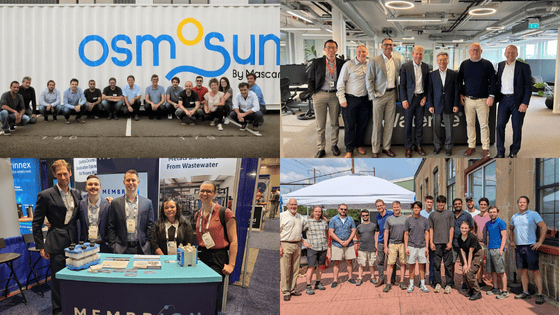Industrial operations often produce by-product streams that are costly to manage and difficult to reuse. One example is salty water, or more specifically, aqueous magnesium chloride, a by-product from the production processes at our partner K+S, a leading provider of kalium fertilizer and salt-based products.Today, this byproduct stream represents a significant cost and environmental challenge. But what if it could be transformed into something useful environmentally and economically? That’s exactly what K+S aims to explore, synthesizing aqueous magnesium chloride into high-value nanostructured magnesium hydroxide.
Corporate Challenge
K+S is actively seeking ways to upgrade its salty by-product stream into market-ready materials. One promising product is magnesium hydroxide, a compound with strong demand across Europe due to its use in:
- Flame retardant applications
- Fillers for polymers and plastics
- Environmental treatments and pH regulation
However, converting magnesium chloride into high-quality magnesium hydroxide micro- or nanoparticles is technically complex. Previous attempts have struggled to maintain product consistency while scaling production. Traditional manufacturing methods are often energy-intensive, inefficient, and require significant capital investment.
The solution: Synthesising Magnesium hydroxide from salty production water through a high-shear technology

To address this, K+S has partnered with Accelerated Materials, a technology company specializing in advanced nanomaterial production. Accelerated Materials offers an integrated process solution through its own K-series reactor systems, a high-performance annular flow reactor designed to bridge the gap between laboratory research and real-world manufacturing. With the ability to operate efficiently at scales ranging from 1 kg to 100 kg per day, these reactors enable fast, cost-effective scale-up while ensuring tight control over particle size and product consistency. The technology has already been successfully validated on materials closely related to magnesium hydroxide, such as hydrotalcite, a layered magnesium-aluminium hydroxide compound.
Unlike companies that only offer equipment, Accelerated Materials combines reactor hardware with deep materials science expertise, a flexible scale-up strategy, and data-driven optimization.
In a pilot project initiated & managed by RootCamp, the two companies are developing and testing the conversion of magnesium chloride into magnesium hydroxide at the 1 kg/day scale using the K1 reactor. This pilot will allow K+S to validate the techno-economic feasibility of the process, evaluate product performance, and reduce the risks associated with full-scale implementation. The results of the pilot will guide future decisions on scaling up toward industrial volumes.
RootCamp bridges the gap between innovators from the startup and corporate environment
RootCamp specializes in finding the right solutions from the startup world for precise corporate challenges, connecting startups and scale-ups with established corporates through a venture clienting approach. By acting as a strategic enabler, RootCamp facilitates real-world pilot projects that allow corporates to accelerate innovation while providing startups with direct access to complex industry challenges and market opportunities. Find out more about our venture clienting services and implemented pilot projects.
/rootcamp_logo_white_2022.png?width=2123&height=630&name=rootcamp_logo_white_2022.png)

/RC%20logo%202022.png?width=2325&height=703&name=RC%20logo%202022.png)






